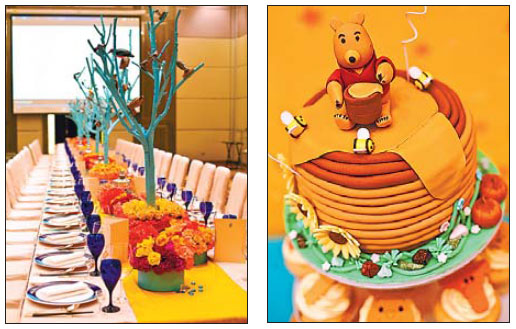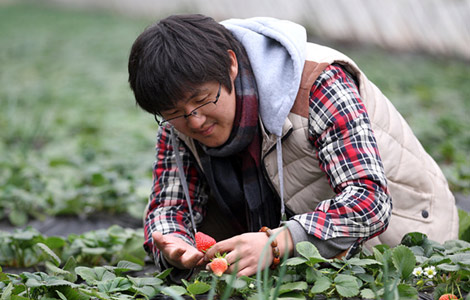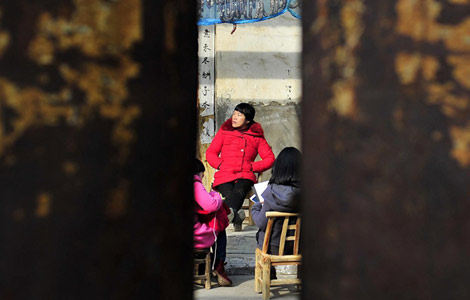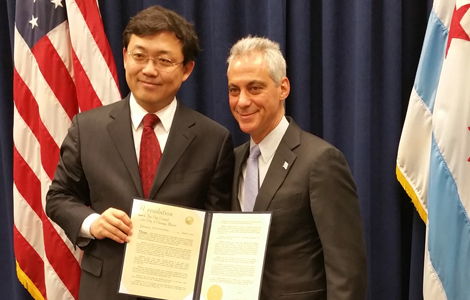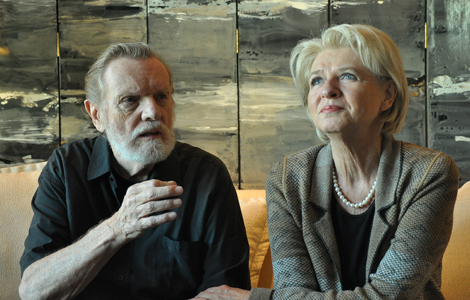Hospitality trade responds to new era of austerity
Updated: 2015-01-31 08:04
By Fu Chao(China Daily)
|
||||||||
|
The Ritz Carlton Beijing Financial Street turn its eyes to dinner parties for children celebrating an early milestone such as one month or 100 days old. Provided to China Daily |
It used to be peak season around the end of year for catering and events at upscale hotels in China.
But frugality rules issued at the end of 2012 now ban government officials from misusing public funds for lavish spending in eight areas including annual dinner parties and meetings.
Hardly cause for celebration in the hospitality industry at the time, luxury hotels around the country have since figured out ways to survive the downturn, reshaping the industry with a focus on the general public and reasonable spending behavior.
According to the Chinese Tourism Green Book from 2013 to 2014 compiled by the Chinese Academy of Social Science and published by Social Science Academic Press, the austerity rules led to a range of restructuring efforts at restaurants, hotels and other parts of the tourism industry.
The authoritative report said lavish spending is expected to have faded further in 2014, bringing the market onto a more rational track to serve ordinary consumers.
A recent study on the commercial sector by the China General Chamber of Commerce supported those findings, noting the catering sector in 2014 had slight growth and became more "popular".
De Kun, deputy general manager of Kuntai Royal Hotel in Beijing, said that after the release of the eight rules on government spending, the hotel switched gears to engage ordinary consumers through an innovative program where its chefs go into the local community and teach people to cook some simple but delicate cuisine.
"The move is to let the general public know that the five-star menu is not that high up and unreachable," said De.
De added that festive dinner menus have been changed to feature more organic food instead of the typical high-end Chinese banquet of expensive seafood.
An executive at a Shanghai hotel said sales revenues from annual dinners this year dipped compared to a few years ago.
"Most of the deals we signed were with corporate clients. There were almost no clients from government or State-owned companies."
He said that there was growth in sales of wedding banquets compared to the previous year as the hotel began stressing wedding and birthday celebrations.
A special birthday party called baobaoyan - literally meaning "baby's banquet" in Chinese - is a traditional ritual when parents host dinner parties to celebrate their child reaching an early milestone, most commonly at one month or 100 days old.
He said that the hotel keeps in touch with its wedding banquet clients to seek more potential customers for the baobaoyan rite.
Besides appealing to general consumers, hotels need to come up with more programs to stand out from the crowd, said industry experts.
The Westin Guangzhou continues to court upscale international corporations for business banquets. It is adjusting the price and improving facilities to offer better packages this year, said Samantha Long, director of catering and event management.
Wendy Soo, director of catering and conference services at The Ritz-Carlton Beijing, said her hotel's brand culture and customer loyalty give it an edge in the competitive festive season market.
The hotel is also working on tapping into the leisure and vacation market with a range of packages.
fuchao@chinadaily.com.cn
Most Viewed
Editor's Picks

|

|

|

|

|

|
Today's Top News
Head of China Minsheng Bank resigns
78% of China's luxury spending done overseas
Mexico suspends high-speed train project
Alibaba may face class-action suit
MH370 verdict reached
No change in Sino-US military ties
US law firms review Alibaba's fakes issue
US wants fair trade with China
US Weekly

|

|
